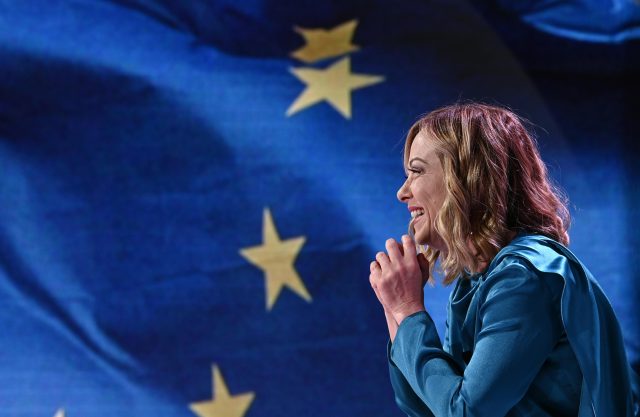
Giorgia Meloni spoke in the Italian Parliament for communications ahead of the European Council meeting to be held on the upcoming 27th and 28th of June. A summit where many difficult strategic issues need to be addressed, such as the war in Ukraine and the situation in the Middle East. Not to mention the important and necessary issue of appointments following the electoral round of June 6th and 9th. The speech in the Italian Chamber of Deputies comes the day after rumors from Brussels about a “closed” agreement on the new community leaders. The face of the new European Commission will still be Ursula von der Leyen, unless there are changes along the way. The reins of the community’s foreign policy will be taken by the liberal Estonian Prime Minister Kaja Kallas, while the Portuguese socialist Antonio Costa will orchestrate the work of the European Council.
The umpteenth ideological choices that do not take into account the people and the shift to the right of the European Union certified by the last electoral round. The premier believes that, in the face of the results of the recent European elections – also characterized by strong abstentionism – someone may be tempted to “sweep the dust under the rug” by continuing with old and disappointing logics “as if nothing had happened”. The main problem observed in this vote is an EU that is “too similar to itself and self-referential” and has not adjusted its strategy despite the changing global scenario. An EU that has been considered by citizens to be too strict and invasive in deciding “what to eat, which car to use, and how to renovate the house”. The European Union has effectively transformed into “a sort of bureaucratic giant” imbued with “ideological choices” that have created “the distance that exists today between citizens and community institutions”.
Europe now has a “difficult task: to rethink its priorities, its approach, and its posture”, accompanied by the “need to do less and do it better”, Meloni continued. “Leave it to the national states to decide what does not need to be centralized” to focus on those necessities on which individual countries “are not able to act alone”. Here then is Italy’s request to the community: to use the principles of “subsidiarity and proportionality”. A concrete political-institutional proposal, from this point of view, could be the formation of a “specific delegation on debureaucratization” created ad hoc by the European Commission. For the EU, it becomes essential to equip itself with tools to support the investments it is called to make and to stimulate private investments directed towards more enterprising markets. This can all be done using the method this government is applying in Italy: “Do not disturb those who want to do”. This means, according to the Prime Minister, “being attractive to others” and this can be achieved by “clearing the bureaucratic jungle”.
Then the topic of migrants comes up. The first right to guarantee is that of “not having to emigrate”, foreseeing the construction of a “new model of cooperation with African nations”. This approach is fully found in “the EU’s Strategic Agenda on which Italy has set an example with the Mattei Plan for Africa”, Meloni continued. The concept is clear: African governments are not asking for alms, “they are not asking for our charity, but for shared projects to be realized together and there is nothing more concrete than investing in infrastructure and energy”.
“We will not allow the mafias to manage entries into Italy, as I think they have been doing for some time, and I am surprised that no one before us noticed,” which is why “I filed a complaint with the National Anti-Mafia Prosecutor’s Office and announced changes to the law regulating the matter”.



 Subscribe
Subscribe